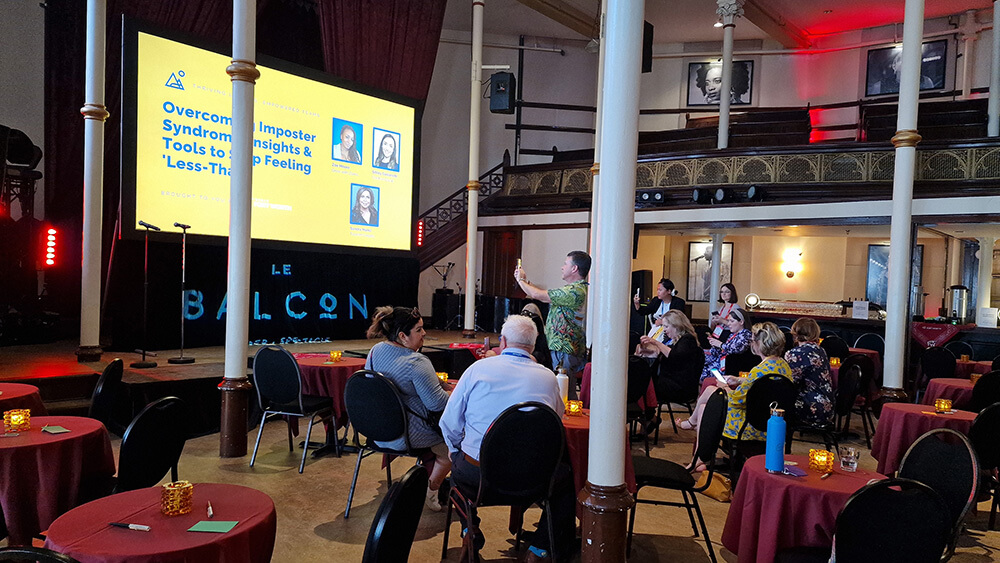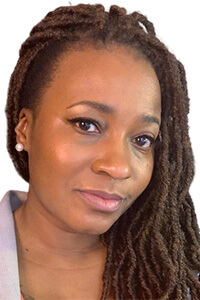
Early PCMA EduCon session participants get settled in for a conversation about overcoming imposter syndrome at the performing arts theater Le Balcon, located in Montréal’s 134-year-old St. James United Church.
“So, all of us here suffer from the same condition,” a female PCMA EduCon attendee said jokingly to the group departing for the learning excursion “Overcoming Imposter Syndrome: Insights & Tools to Stop Feeling ‘Less-Than,’” that took place at the performing arts theater Le Balcon, in Montréal. All of us women within hearing distance chuckled knowingly.
As a woman in the events industry, I’ve often followed the mantra “Fake it till you make it.” The difference between men and women is that most of us never stop believing that we keep on faking it, regardless of our achievements. According to a Harvard Business Review (HBR) article, “As white men progress, their feelings of doubt usually abate as their work and intelligence are validated over time.” Women, on the other hand, experience the opposite, the article’s authors, both women, say. They add, as a sign of proof: “Rarely are we invited to a women’s career development conference where a session on ‘overcoming imposter syndrome’ is not on the agenda.”

Zoe Moore
The EduCon session, led by Zoe Moore, strategic EDI consultant at Grow with Zomo, started off with a reminder to the audience to mind their own triggers, listen to learn, reflect on experiences that are not their own, as well as to speak their truth. Even if every single audience member raised their hand when Moore asked if they have ever felt “less than,” she wanted to guide the conversation in the most positive way that would lead to growth for both women and men.
While the events industry is female-dominated, as noted in an IBTM report on gender equality, not surprisingly “the number of men within the industry increases as we climb the seniority ladder.” Emma Abson, Ph.D., senior lecturer at Sheffield Hallam University, shared some of the reasons for the lack of female leadership in the business events industry at an event held on International Women’s Day 2023, according to micebook. Her preliminary research indicates factors at play include the challenge of achieving a work-life balance due to long working hours and high-pressure environments, a lack of support for women who have children, a difference in women’s leadership style compared to men’s, the fact that men are given more leadership opportunities and exhibit more confidence, and persistent sexual discrimination.
At EduCon, Moore raised the question of whether what we experience is really “a syndrome or a treatment,” alluding to the fact that imposter syndrome is a systemic issue, as the HBR article asserts. “Imposter syndrome puts the blame on individuals, without accounting for the historical and cultural contexts,” the authors write, and the treatment is directed towards “fixing women at work instead of fixing the places where women work.” Moore, an army veteran, shared a story from her military background and how she called out a superior who harassed her and others in the squad — a reminder that sometimes we can leverage the systems that let us down.
Moore said fixing the system requires “inclusive and supportive environments and challenging societal stereotypes.” On a personal level, she invited women to engage in more self-reflection, to challenge negative thoughts, seek support, and to recognize their own personal achievements. Following her prompt, the audience repeated after her: “My success is due to my knowledge, experience, and internal factors.” It’s just those persistent external factors that keep us questioning our abilities.
Magdalina Atanassova is digital media editor at Convene.
